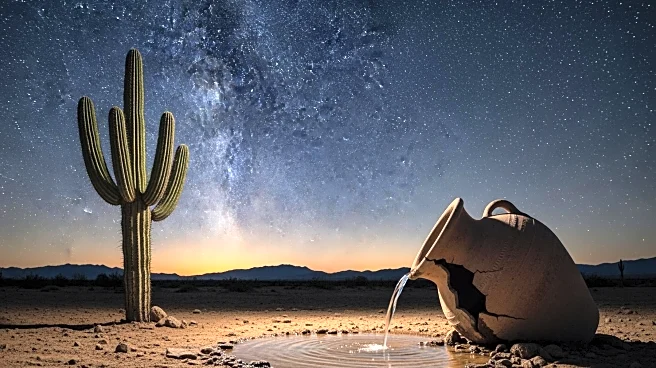What's Happening?
Iran has announced that it will temporarily shut off water supply during evening hours in several regions, including the capital Tehran, due to a severe drought. President Masoud Pezeshkian warned of drastic
rationing measures if there is no rain by December, and even mentioned the possibility of evacuating Tehran if the dry period persists. This decision reflects the acute water crisis facing the country, which has been exacerbated by climate change and environmental mismanagement.
Why It's Important?
The water supply cuts in Iran highlight the growing impact of climate change on global water resources and the challenges faced by countries in managing these crises. The situation in Iran could have broader implications for regional stability, as water scarcity can lead to social unrest and exacerbate existing tensions. The announcement underscores the urgent need for sustainable water management practices and international cooperation to address climate-related challenges.
What's Next?
Iran may need to implement further water rationing measures and explore alternative solutions to address the crisis. The government could engage in diplomatic efforts to seek international assistance and cooperation in managing water resources. The situation may also prompt discussions on climate change adaptation strategies and the importance of investing in sustainable infrastructure.
Beyond the Headlines
The water crisis in Iran raises ethical and environmental questions about resource management and the impact of climate change on vulnerable populations. It highlights the need for global cooperation in addressing environmental challenges and the importance of sustainable development practices.









